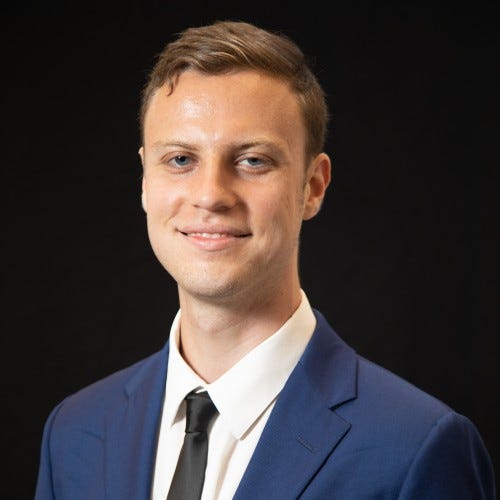Contributing to Positive Peace Through Impact Crowdfund Investing
I’m not a financial advisor; Superpowers for Good should not be considered investment advice. Seek counsel before making investment decisions.
When you purchase an item, launch a campaign or invest after clicking a link here, we may earn a commission. Engage to support our work.
Positive peace, as articulated in professional peacebuilding, goes beyond merely preventing violence. It encompasses creating societies where justice, equality, and human rights are actively promoted. Today’s SuperCrowdHour webinar explores how impact crowdfund investing can serve as a vehicle for achieving positive peace by directing capital towards enterprises that build harmonious societies.
Watch in the YouTube video player above or join us in the room via Zoom to have your attendance counted toward your $100 reward for joining us ten times!
Impact crowdfund investing emerges as a novel form of financing where the general public can invest in ventures that promise social or environmental returns alongside financial gains. This participatory approach to investment democratizes access to capital for projects that traditional funding mechanisms often overlook. Notably, it empowers local communities by aligning investor interests with broader societal benefits, such as sustainable development and inclusive growth.
The synergy between impact investing and positive peace is profound. By supporting projects that address the root causes of social injustices—such as inequality, environmental degradation, and lack of access to education—impact investments can foster environments where peace is sustainable. For instance, investing in a company that provides affordable clean water in a drought-prone region not only yields returns but also mitigates conflicts over scarce resources, thereby contributing to positive peace.
Furthermore, impact crowdfund investing engages the wider community in peacebuilding. As individuals choose where to invest their money, they become agents of peace, selecting projects that resonate with their values of equity and sustainability. This collective action amplifies the impact of each dollar invested, creating a ripple effect that can transform societies.
In conclusion, impact crowdfund investing can be a powerful tool for achieving positive peace. By focusing on enterprises that prioritize social good, these investments can help construct the foundations of a society where peace is not merely the absence of conflict, but a dynamic quality of human development and equality. As this form of investing grows, it could significantly influence how peace is cultivated at both local and global levels.
Our panel of professional peacebuilders will help us think about how to layer peacebuilding into our impact focus. The extraordinary panelists are listed below.
Charles “Chip” Hauss has been exploring ways of producing large-scale social and political change through nonviolent and cooperative means since his undergraduate days at Oberlin College in the late 1960s. In all of this work, Hauss has tried to be a political bridge builder who brings “strange political bedfellows” together to help solve problems that can only be effectively addressed if they work together. In that work, he relies heavily on complexity theory and other holistic approaches that stress the long-term costs of actions that harm others and the long-term gains that can be achieved through collaboration. Hauss is currently Senior Fellow for Innovation at the Alliance for Peacebuilding and has just begun creating the Connecting the Dots Community that will try to do just that across issue-based and ideological lines. His work focuses on building “space” in which members of the peace-building community can work together, incorporate ideas from the corporate and IT communities into peacebuilding, and begin laying the groundwork for the way America deals with wicked problems in general. His work is not limited to AfP and the Connecting the Dots Community. He serves on the boards of Build Up and the National Association for Community Mediation, is actively involved in Zebras Unite (where he holds the title, “Fairy Godfather We Didn’t Know We Needed,” and is a visiting scholar at George Mason University Carter School of Peace and Conflict Resolution, and more.
Emily Evans: Over the past 10 years, Emily has dedicated herself to uncovering the root causes of complex social and political issues that degrade trust and prevent communities from experiencing sustained belonging. Drawing upon lessons from deeply divided societies around the world and populist movements in democratic nations, her research and work use ethnographic data and stakeholder feedback to generate a deeper understanding of present issues and the communities involved. She focuses on uncovering the underlying factors and processes that make people more susceptible to mis/disinformation claims, populist political engagement, and hate-based violence.
In 2021, she pursued this commitment at King’s College London as an MA student in Conflict Resolution in Divided Societies. Her graduate dissertation was a secondary ethnographic study of white rural and industrial American communities and the collective narrative that informed political engagement from 2008 to 2016. As part of this and other research projects, she has sought to make sense of the intricacies of public opinion and affective experience around issues including immigration, racism, and economic instability. Emily also has a BA in Anthropology and a Certificate in Peace and Conflict Studies.
While Emily’s research and work are grounded in cultural anthropology, social psychology, and political science, she has a passion for harnessing the power of cross-cultural and crosssectoral thought and engagement for good. Having grown up in the US, the UK, and the Netherlands, her desire to connect across differences and bridge divisions in the midst of conflicting interests was nurtured from a young age, and she continues to incorporate these lessons into her everyday life, travels, research, and programmatic work.
Nick’s interests and experience lie at the intersection of peace and stability, gender equality, and grassroots-oriented understandings of human security. He has professional experience in peacebuilding and conflict prevention, strategic communications, investment research, political economy analysis, and international development. In 2021, Nick received his M.A. in International Affairs — concentrating in Global Gender Policy and International Law & Organizations — from The George Washington University’s Elliott School of International Affairs, and his B.A. in Mandarin Chinese and World Politics from Hamilton College in 2017.
Upcoming SuperCrowd Event Calendar
If a location is not noted, the events below are virtual.
Impact Cherub Club Meeting hosted by The Super Crowd, Inc., a public benefit corporation, on April 14, 2024, at 1:00 PM Eastern. Each month, the Club meets to review new offerings for investment consideration and to conduct due diligence on previously screened deals. To join the Impact Cherub Club, you must first become an Impact Member of the SuperCrowd.
SuperCrowdHour, May 15, 2024, at 1:00 Eastern. Each month, we host a value-laden webinar for aspiring impact investors or social entrepreneurs. Stay tuned for details.
SuperCrowdChicago, June 12, 2024. This in-person event at Columbia College Chicago features some of Chicago’s prominent citizens and community leaders, along with crowdfunding experts. Use the discount code “SuperCrowd” to save 30 percent!
Recently, we created an AI GPT to help you learn more about The Super Crowd, Inc., a public benefit corporation, and our upcoming events. Click here to try it.
SuperCrowd Community Event Calendar
Move Your Money Month, April 2024, American Independent Business Alliance
Crowdfunding Professional Association Webinar, May 8, 2:00 PM ET
The Reg A & Crowdfunding Conference, June 20, Westchester Country Club (Save 20% with the code Super20)
Crowdfunding Professional Association, Summit in DC, October 22-23
If you would like to submit an event for us to share with the 4,000+ members of the SuperCrowd, click here.








